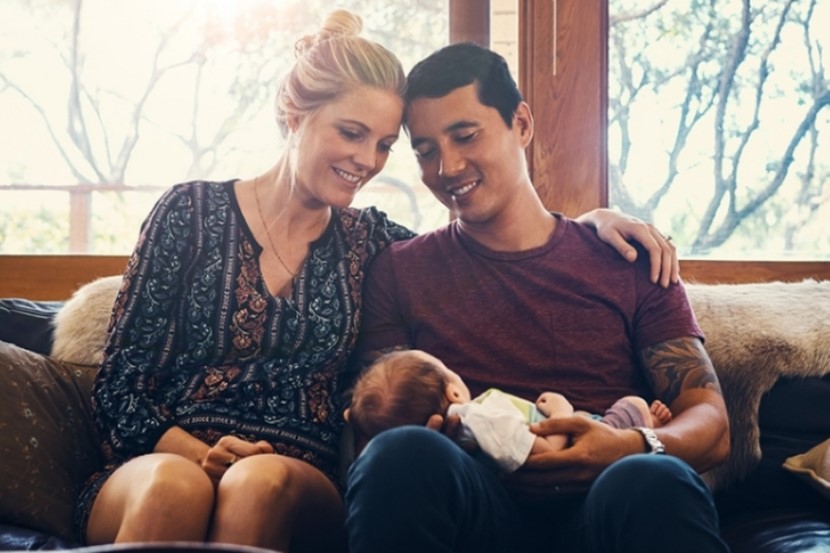Adoption in New Zealand

Adoption is when a couple, or person, takes over the role and responsibility of parent to a child from the child's birth parents. In New Zealand, adoption is a legal and binding agreement between the birth parent/s of the child, and the adoptive parents.
Adoption in New Zealand is overseen by the Adoption Information Services Unit (AISU), which is part of the government agency Child, Youth and Family Services. AISU deals with all aspects of the adoption process from screening prospective birth parents to post-adoption support services, and in some cases, assisting adults who have been adopted to locate their birth parents.
The decision to adopt a child requires much thinking and planning. As well as the usual things that couples planning parenthood need to consider such as finances, maternity/parental leave, stocking up on baby accessories etc. there are also many complex emotional issues to think through. For many couples considering adoption is a last resort, either because they are not able to undergo IVF or similar procedures, or because they have tried these other options without success. Adoption may also be an option for same-sex couples or single people who feel a calling to become parents.
A couple or person considering adoption should begin by contacting their local AISU office. A list of offices can be found here. The AISU will then usually recommend that the couple or person attend either a group information meeting, or a one-on-one information session with an adoption social worker, to learn more about what is involved in the adoption process.
The next step is to make a formal application, the forms for which are available from AISU. When applying to adopt a child, you should be prepared to provide medical information about yourself and your family, and to consent to your family doctor providing further information if required. You should also be prepared to consent to a Police check, and to supply contact details for at least two personal references that can support your application. Having a health condition or a criminal conviction will not necessarily mean that you will not be able to adopt, but it is very important to be honest about this, and to discuss it with an adoption social worker when you first make your application.
After your application has been processed, you will be asked to attend an Education and Preparation Programme which will provide you with more detailed information on adoption, as well as counseling and support to help confront the emotional side of the adoption process.
During the Education and Preparation Programme you will also undergo a number of assessments with adoption social workers to establish your suitability as an adoptive parent, and address any concerns you may have. You will also be asked to put together a family profile which gives details of your family background, health, ethnicity, values, beliefs etc. Ultimately, it is this profile which will be shown to birth parents looking to place their child with an adoptive family.
If your application is selected by a birth parent/s, you will be informed, and will be given an opportunity to meet with the birth parent/s to discuss the prospective adoption. The final decision rests with the birth parent/s, but you will be kept informed during the decision making process.
The legally binding Consent to Adoption agreement cannot be signed by the birth parent/s until the child is at least 12 days old. This is to give the birth parent/s time to come to terms with their decision to adopt out their child, and they can change their mind at any time until the Consent to Adoption agreement is signed.
Who cares for the baby during this initial period is something to discuss with the birth parent/s before the child is born. Some birth parents prefer the child to be taken immediately after birth by the adoptive parents, as they do not want to bond with their baby. Other birth parents however prefer to keep the child for the first few days at least, some birth mothers may even want to breastfeed initially to give the baby the best possible start. These are all questions which should be addressed before the child is born, as after the birth emotions are running high, and it can be a stressful time for all concerned.
After the child is at least 12 days old, the Consent to Adoption can be signed by the birth parents and adoptive parents, and must be witnessed by a solicitor. From this time, the adoption is legally binding, and a new birth certificate will be issued giving the names of the adoptive parents.
The adopted child does have the right once he or she turns 20 to access the original birth certificate with the names of his or her birth parents, but until this time, the original birth certificate remains sealed. It is up to the adoptive parents to decide if and when they tell their child he or she is adopted, and how much information they offer. However, AISU recommend that parents of adopted children are honest with them early on, as teenagers and adults who find out that they were adopted can sometimes feel anger or resentment at not being told earlier.
| For more information on adoption in New Zealand, check out www.orangatamariki.govt.nz |

